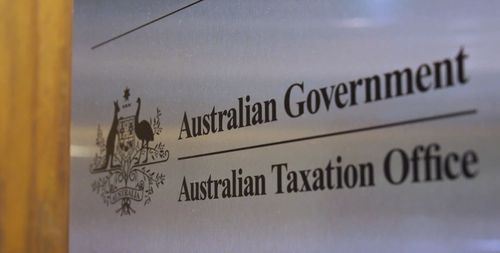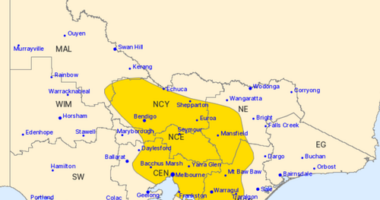Share this @internewscast.com
The Australian Taxation Office (ATO) has reached a significant milestone, having amassed over 300,000 tip-offs from the public regarding tax evasion since its whistleblower service was introduced in 2019.
In the most recent financial year, Australians contributed nearly 50,000 reports on potential tax dodgers, underscoring the community’s active role in combating tax fraud.
A notable portion of these alerts pertains to the “shadow economy,” where individuals demand cash payments for work or inappropriately claim business expenses, according to the ATO. This clandestine activity is believed to divert billions of dollars away from critical public services such as health care, education, and infrastructure.

ATO Assistant Commissioner Tony Goding emphasized the broader impact of tax evasion, stating that businesses avoiding their tax and superannuation obligations are effectively robbing their fellow citizens. “When someone cheats the system, they’re not just breaking the law, they’re freeloading on honest businesses and the rest of the community,” Goding remarked.
ATO Assistant Commissioner Tony Goding said businesses that dodge their tax and super obligations are simply stealing from fellow Australians.
“When someone cheats the system, they’re not just breaking the law, they’re freeloading on honest businesses and the rest of the community,” Goding said.Â
“Paying tax is not optional.
‘Sooner or later, and probably sooner, if you’re operating in the shadow economy, the ATO will discover this… as a result of a tip-off from one of your workers, customers or competitors.”
Industries with the most tip-offs
The top three industries seeing a surge in tip-offs this year are building and construction, cafés and restaurants, and hairdressing and beauty services.
Goding noted that the sources of these reports are often very close to the businesses themselves.Â
“With tip-offs often coming from customers, employees, other businesses, and even family and friends, the community is clearly fed up with dodgy behaviours and is stepping up to help us make things fairer,” he said.Â
Australians have been reporting businesses and individuals who didn’t declare their income, demanded or paid for work in cash to avoid tax, or failed to report all sales.
Where have the most tip-offs come from?
Community vigilance is widespread across the country, but some areas are more active than others.Â
In 2024â25, NSW residents led the charge, recording 15,907 tip-offs to the ATO, followed closely by Victorians with 11,890 and Queenslanders with 10,630.
While Sydney and Melbourne topped the charts for total tip-offs, suspicious activity is not confined to the major capital cities.Â

The top five regional areas for tip-offs this year included a strong presence from Queensland: Robina; the Sunshine Coast Hinterland; Townsville; and Toowoomba.
Newcastle in NSW topped the regional list.
“From coastal towns to inland hubs, communities are calling out suspicious behaviour and helping the ATO crack down on the shadow economy,” Goding said.Â
The tip-offs the ATO receives have proved to be remarkably accurate, with 85 per cent of those analysed in the last financial year found to be suitable for further investigation.
Australians were becoming more savvy about what constitutes a red flag, the ATO said.
It’s not just “cash only” signs that should raise eyebrows, but broader lifestyle and operational anomalies.Â
Suspicions being flagged could include a luxury car parked outside a business that claims to be struggling, a busy café that never seems to report profits or employees, or workers being paid entirely in cash without payslips or superannuation entitlements.
“People evading their tax and super obligations are directly harming honest businesses and putting an increased burden on other Australians. There really is no excuse,” Goding said.Â
“And when you’re caught, you don’t just have to cough up the tax.
“You’ll also face significant penalties plus interest on unpaid taxes and possibly even criminal sanctions.”












